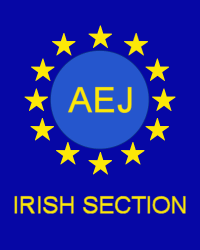Press freedom is an essential cornerstone of democracy but it is under permanent pressure from a variety of sources, the Editor of The Irish Times, Geraldine Kennedy, told the Association of European Journalists in Dublin.
The purpose of journalism was to serve the public’s right to know, she said in an address to mark World Press Freedom Day on May 3.
That principle had governed her decision to publish Colm Keena’s controversial news report in September 2006 on the payment of monies to then-taoiseach Bertie Ahern during the latter’s time as minister for finance some years beforehand.
“I make no apology – and I never have – for taking the steps required to bring that story to publication in the public interest and to protect journalistic sources in doing so,” Ms Kennedy said.
The protection of sources was a fundamental requirement of a free press and that was the reason The Irish Times fought to protect the source of the document which led to Mr Ahern’s resignation as taoiseach.
“We won a landmark judgment, enshrining the principle of journalistic privilege and the protection of sources in Irish law for the very first time.”
The media were only as good as their sources: “We can’t compel people to answer questions, demand discovery of documents and all the other powers which are, rightly, reserved to the legal system.”
In her experience, “many of the best sources are people who act for the highest motives – they see something going wrong which they believe ought to be righted”.
But whatever a source’s motives, “he or she must have the full protection of anonymity and they must be able to rely upon the assurances of a journalist that they will not reveal their identities to anyone”.
People in positions of power tended to dislike the media and would take any excuse to limit the powers of the press.
“Unfortunately, the excesses of the media, mainly of the tabloid press in Ireland, sometimes give them just such an excuse in areas like privacy.
“We saw how close the last Government came to introducing a privacy Bill alongside the recent changes in the Defamation Act and, we should admit, for pretty understandable reasons,
“How many members of that last Government and/or their families have had their privacy invaded by the media for reasons of prurient rather than public interest?”
“It is important that the media, like all other institutions of power and influence, use their power and influence responsibly and are prepared to admit mistakes when they make them.
“For this reason The Irish Times has always been a strong advocate of a Press Ombudsman and Press Council to provide redress to people who feel aggrieved and act as a standard-setter for all elements of the media, including the Irish editions of British newspapers,” Ms Kennedy said.

